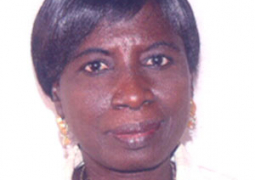This
piece will reflect on the dilemma of the African youths and The Gambian youths
in particular. It is important to discuss and to debate about the objective
conditions of the youths who are most affected by lack of access to gainful
employment and victims of unfulfilled government promises.
For
54 years the youths (men and women) have clapped, danced, supported and voted
for governments of the elderly. The governments of the elderly failed to
reciprocate the good will gestures of the youths in the development process. In
The Gambia this year, National Assembly members insisted that more resources
should be allocated in the 2020 Budget to the Ministry of Youths and Sports
that continues to be headed by elderly minister after minister. Yet, there is
no longer small pool of dynamic, educated and committed youths who can take
over the mantle of leadership in youth affairs in the country.
There
is over whelming evidence that the African youth including Gambian youths are
being traumatised, marginalised, humiliated, frustrated and discriminated
against in many instances. They are being stressed everyday; life is becoming
more and more difficult for them. These are contributing factors to the poor
and pitiful plight of youth in The Gambia and elsewhere in Africa. Yet the
involvement of youths who are the crème of society, in the development process
is vital to the well-being of society. Given the fact that youths constitute
about 65% of the population, they are either the key or answer to sustainable
development. The empowerment of youths in the development agenda is of absolute
necessity and is of utmost urgency.
I
am therefore, reminding the government of the Gambia of the fierce urgency of
addressing the concerns of the youths in concrete terms and to avoid
unfulfilled promises. Political life has expiry date and that the youths will
not take it kindly if their situation remains weak in empowerment.
In
empowerment, we want to see the transition of the youths from pain to pleasure.
In empowerment, we want to see economic power for the youths. We want equal
opportunity and gender balance for all youths, men and women. In empowerment,
we want program interventions to be increased for the uplift of youths from
poverty to prosperity, from an era of hopes to an era of development, from the
abuse of women to the protection of women. And in short, to ensure their
effective predication in all aspects of national life. Youths must assume their
rightful status in our society.
Let
me ask this question. Can we honestly say that the much talked about
empowerment activities for the youths have significantly yielded dividends for
them? For example, would the, sum of D20, 000 or D30, 000 seed money in these
inflationary times seriously up lift the status of any youth from poverty.
Would a D200 fair be reasonable to give to a deportee on arrival at the
airport? Would a system of unending workshops and seminars cater to the needs
of the youths and ensure their empowerment for a descent life. We must be ready
as a country to take up full responsibility for setting the right foundations for
the wellbeing of the youths or else we will all perish in shame.
The
recent crisis regarding migration has waken the moral consciences of the world.
It is a widely held view that the deportation of Africans from America and
Europe violates their human rights and contravenes the UN charter on universal
declaration of human people right.
Why
would the West become intolerant of African migrants after the West used
African labor to build the West? Why would Africa governments turn blind eyes
to the exodus of their citizens to Europe in this day and age? The youths have
found themselves in a catch 22 situation-neither here in Africa nor there in
Europe and America. Hence the mass deportations of African people to their
homeland
The
question now is what should be done under the circumstances to keep our youths
back home safe and sound. I think the solution calls for coequal responsibility
between the government and the youths themselves. The government should be seen
to create, the enabling environment in real terms to keep the youths in
productive engagement. The youths must realize that some people dream of
success, others not only dream but wake up and work at it.
In
this regard, the training provided by GTTI, Insight Training Institute, Real
Tech Gambia Ltd., etc for youths employment skills, is the way forward to
sustainable livelihood for our youths. Training institutions like these should
be applauded by all for encouraging the youths to become self-Reliant through
live skills. As a matter of fact, such training scheme is an indictment on the
misoriented educational system which breads white color mentality when
graduates seek for jobs.
The
government and development partners should be seen to collaborate to set up a
fully equipped and functional National skills Development Training Institute
for maximum impact in the empowerment of youths. All areas of sustainable
livelihoods such as auto mechanics, electrician, plumbing, carpentry joinery,
radio and cell phone repairs, Tv technicians, computer technicians, masonry,
welding and fabrication, construction, electronics, painting, etc. For such a
center, qualified trainers and lecturers could be recruited on a two yearly
contract basis from within the Gambia or from aboard. Two years of intensive
training should be reasonable to produce a skillful population. With skills the
youths will become employable or self-reliant. This is the way to unlock the
potentials of the youths for sustainable development. Government must also act
decisively to revamp the productive sectors of the economy and engage the
youths in gainful employment.
The
author is a retired diplomat, technocrat and seasoned Administrator of long
standing in the service of his country. He is widely known for his oratory
skills and strong public relations approach. The author is a trained political
scientist.



